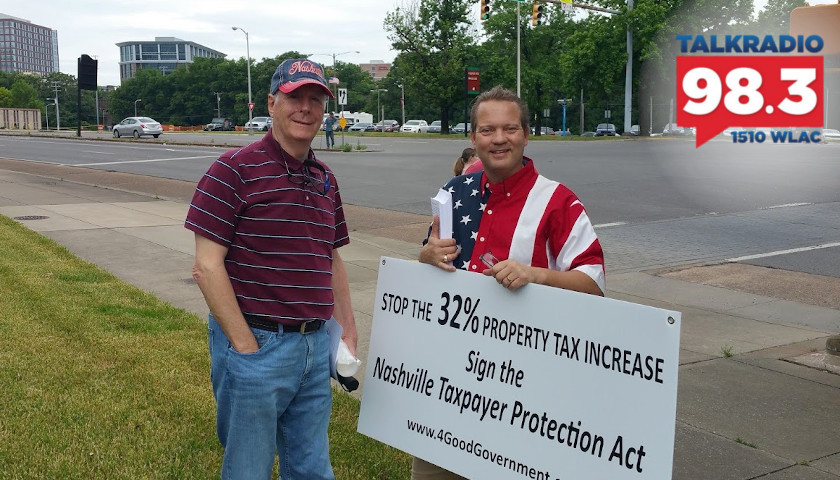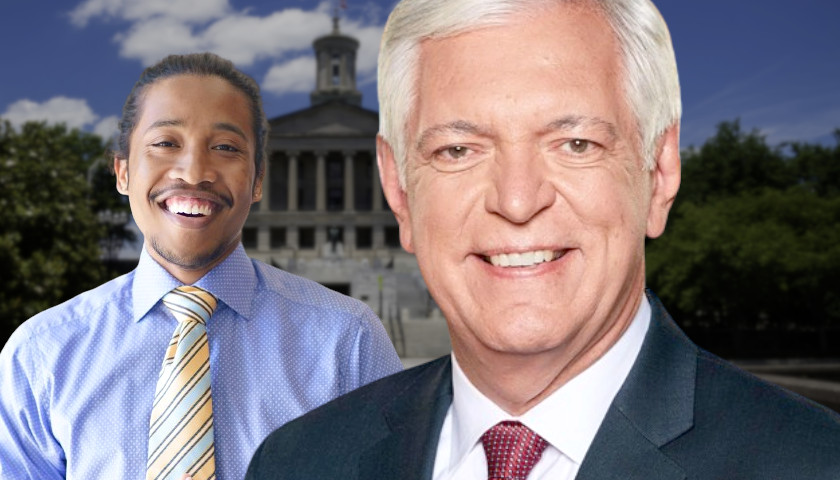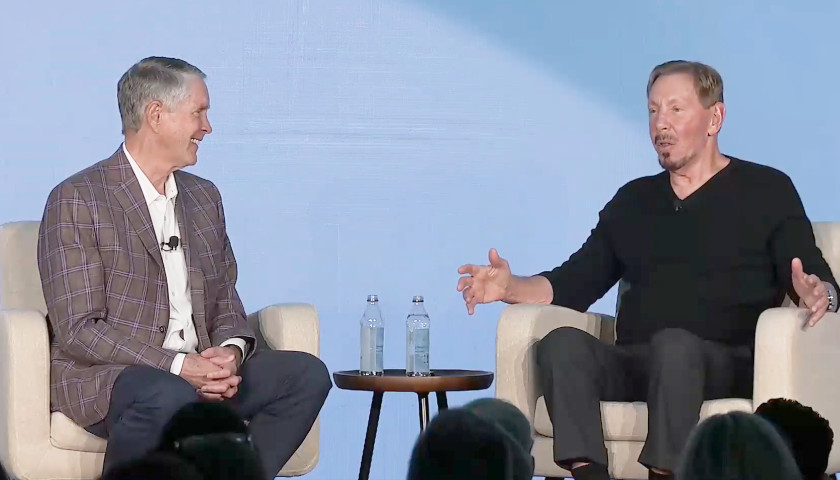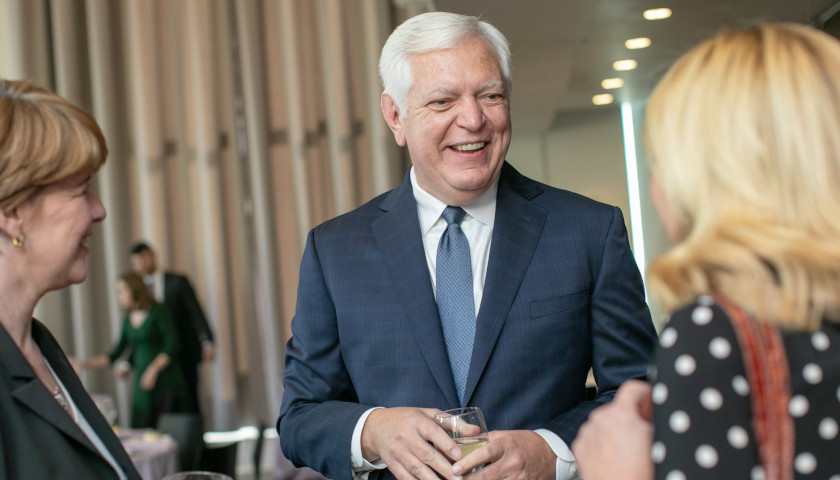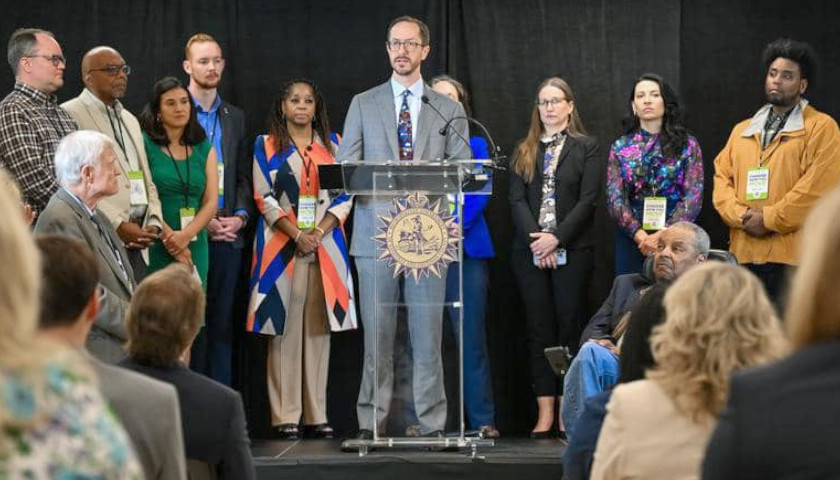Live from Music Row Friday morning on The Tennessee Star Report with Michael Patrick Leahy – broadcast on Nashville’s Talk Radio 98.3 and 1510 WLAC weekdays from 5:00 a.m. to 8:00 a.m. – host Leahy welcomed Nashville attorney Jim Roberts to the newsmakers line.
During the third hour, Roberts gave updates on the petition for the Nashville Taxpayer Protection Act and detailed the timeline in order to get the referendum on the ballot by August 6. He added that this will allow the mayor and the Metro government to remain accountable and transparent to the taxpayers of Nashville.
Leahy: And we are joined now by our very good friend. An excellent attorney and supporter of all the good causes here in Nashville Jim Roberts. Good morning Jim.
Roberts: Good morning sir how are you doing today?
Leahy: So you are the guy behind the Nashville Taxpayer Protection Act on the web at 4goodgovernment.com. Tell us about that Nashville Tax Payer Protection Act and your petitions that you are signing to put a referendum on the charter. Where do we stand on this and what does the protection act do?
Roberts: First of all I’m not the only person involved. There is a whole load of people who have come forward and are gathering petitions and talking to folks. I’m just one of many. The charter amendment that we put forth is really to try to add a little financial stability to the Metropolitan government.
I think this 34 percent tax increase and additional spending that was thrust upon us on a rough economic market is a symptom of what’s wrong with the Metropolitan government’s inability to make good decisions. This petition sort of came out of that. It came out of the idea that we need to reign them in a little bit.
Give them a little backbone and hopefully force some good changes. Things are going great. We have 40,000 petitions were mailed out this morning. We’ve already collected over half the signatures that we need. We are right on track. This is going to be on the ballot.
Leahy: What does the petition say? How many signatures do you need to get on the ballot and describe that ballot process for us?
Roberts: Sure. It really does about five things. The most important to most people is that repeals the 34 percent property tax increase and puts a limit of two percent per year as the maximum amount that the Metropolitan government can raise our taxes without voter approval.
Leahy: The cheering sound that you are hearing is our listening audience around Tennessee saying yeah!!! (Roberts chuckles)
Carmichael: Let’s mention again here again for our listeners that Jim needs probably twice as many signatures from Davidson County as the law requires because the powers that be will do everything they can to try and keep the voters from voting on this very important question. So let’s mention that the website where they can download the form.
Leahy: 4goodgovernment.com. You can download the petition.
Carmichael: And you can sign it and go with other people to sign it too.
Leahy: How many signatures do you need? And if you get enough signatures and they are verified, what will happen on the ballot?
Roberts: We probably need a minimum of about 4,500 and you are right, we probably need three or four times that to keep any shenanigans from happening to the process. That number is not known because it will be based on the number of people that vote in the August 6 election.
Leahy: But probably around 4,500 you think?
Roberts: Correct. Once that happens and the petitions are turned in.
Leahy: What’s your deadline for turning in the petitions?
Roberts: It’s probably about the second or third week of August. But our goal is to turn them in on the seventh of August. That’s what we’re shooting for. That’s the day after the election. Get those signatures in that way we have the maximum amount of time to educate people on.
Leahy: Crom has a question for you.
Carmichael: Let’s just assume that you just turn in 15,000 so that there is no question as to whether or not you have the number of signed petitions required by law. Even if they can’t disqualify a large number is there any legal thing they can do to try and keep what you’re doing from being on a ballot for the voters to vote?
Roberts: It’s very difficult Crom because up until the time that it’s voted on its all sort of speculative. Certainly, some dishonest people will try to come up with ways to attack us and to distract us and keep us off message from the campaign to get it approved. But from a legal standpoint, until its actually approved by the voters, it could be voted down.
The courts will generally look at that and say this is very speculative. You don’t know if it’s going to be approved or not. If it was something outrageously unconstitutional or illegal court could probably step in. Everything in this ballot initiative is designed to reign in government and that’s not illegal.
Carmichael: The point that Jim is making is the point Michael that we make on this show a lot, and that is in the absence of institutional constraints against bad government, the government has a natural tendency to grow and become bad. And by the way, based on the one conversation that I had with our mayor prior to the election I believe that he really is in favor of this ballot being put up before the voters and I believe that he really wants the voters to pass it.
Leahy: And the reason is?
Carmichael: The reason is that he said that he said prior to his running that he was not for a property tax increase and I believe him. (Leahy laughs) I believe that they must have something on him. There must be something that is forcing him to do something that is against his will and that he knows is bad for our city based on what he said prior to the election which I think is dis-positive.
Leahy: Ok. Great. Jim, walk us through the timeline.
Carmichael: I really want to help the mayor.
Leahy: We do.
Carmichael: Do the right thing and I know he wants to do the right thing.
Leahy: Jim, walk us through the timeline. The petitions are submitted and let’s say they are approved by mid-September, tell us what happens next.
Roberts: Once we turn the signatures in the Metro clerk is the person we turn them into. They will verify the signatures. Then it goes to the election commission and they have to put it on the ballot and schedule the election.
Leahy: And when will that happen?
Roberts: Sometime in the next two or three weeks of August. They will probably delay or hem and haw a little bit but in the end, they will have to do it. And they will set it for the date that it’s set on. Then we’ll spend August and September and October educating people. The good news is they will start to get their property bills at that time and they will see first hand what’s about to happen to them if they don’t vote for this.
Leahy: If it all goes through there would be a vote on this charter amendment right? A referendum on it? That would happen in what December?
Roberts: December 5.
Carmichael: December 5. Ok.
Leahy: There would be a big campaign. So somebody gets this tax increase of 34 percent and if they just hold onto it and then they go to the polls and vote in favor of your charter amendment limiting property tax increases to two percent, would that mean that they wouldn’t have to pay the 34 percent increase that they received in the mail?
Roberts: That’s right.
Leahy: Wow.
Roberts: This is retroactive to January 1 and it will invalidate and I think it will take the 34 down to two percent and I think that’s the effective result to this. Although some people think it would abolish the entire approval. but I’m happy to give them two percent.
We do need to raise our property taxes a small amount every year to track inflation. is because we go year after year after year with no property tax and then just inflict a huge jump on people. That’s an irresponsible way to do it.
Leahy: Jim, if this referendum was to pass then the property tax increase would be revoked, would that reduction in revenue drive Nashville into insolvency or bankruptcy?
Roberts: Well, it wouldn’t result in bankruptcy. That’s something the state has to deal with. What it does is it creates a situation where they just can’t say business as usual. The Metro Council and the mayor are going to have to step up. They are going to have to cut out that extra $100 million of spending they put into the bill.
They will have to take account of the money they have received and are likely to receive from the federal government. And it is possible that some sort of smaller tax might need to be implemented. But they are going to have to go to the people to justify it. They are going to be business as usual.
The Metro Council and the mayor are going to have to go to the people and say this is what we need and not just spend money willy nilly and just pretend that its just business as usual. It’s not. We are in a different economy and climate and they need to be responsive to that.
Leahy: So then they’d have to do another referendum to get another tax increase?
Roberts: If the mayor wants to do a tax increase or the council, all they have to do is put it to the people. Nothing prohibits them from having a 34 percent tax increase they’ll just have to have a voter referendum if they want to do it.
Carmichael: And that’s responsible government.
Leahy: And that’s what they’d have to do and if your amendment passes in December which I hope it will.
Carmichael: He needs to get the petitions signed first. 4goodgovernment.com.
Roberts: If you go to nashvilletaxpayerprotectionact.com that will get you there too.
Listen to the third hour here:
– – –
Tune in weekdays from 5:00 – 8:00 a.m. to the Tennessee Star Report with Michael Patrick Leahy on Talk Radio 98.3 FM WLAC 1510. Listen online at iHeart Radio.

